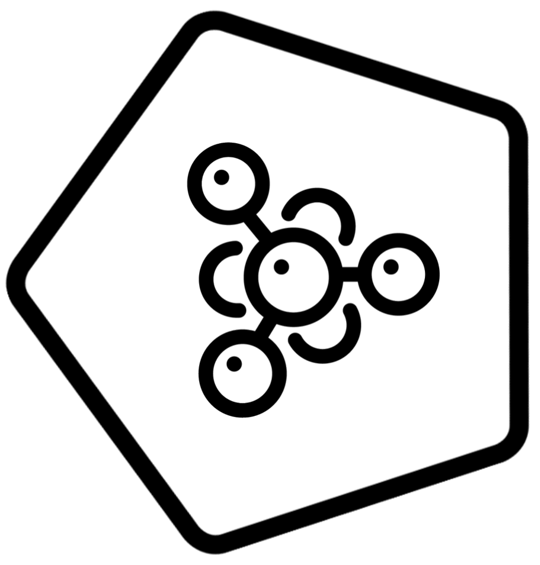Patents
Patents (is. einkaleyfi) are granted for technical inventions which are considered to be new on the date of filing (novelty) and sufficiently different from what is known from the state of the art (inventive step). Inventions may consist for example of products, equipment or machines, methods for using or producing goods such as food or medicine or the use thereof. Ideas such as business methods, games or aesthetic creations are however not considered to be technical and thus not patentable. Other kind of protection may however apply. A programme for a computer may be protected, in so far as it performs a technical act.
Inventions need not to be very complex and they may be built on what is already known if something new and useful has been created.
If the invention is to be presented prior to the date of filing it is advisable to enter into non-disclosure agreements. An invention that has been presented or publicly available prior to the date of filing may not be considered new and inventive.
Protection
Inventions may be protected by patents, applied for at the ISIPO or possibly kept secret, a trade secret. If a patent is granted the invention is protected for up to 20 years, subject to the payment of annuities. Additional 5 years may be granted for medicine inventions (Supplementary Protection Certificates – SPC) and additional 6 months if the medicine is for paediatric use.
A patent provides exclusive rights to use the invention, to allow others the use thereof (licensing) or to prohibit the use of others thereof. After publication of the invention, 18 months from the date of filing, others are however allowed to use it as foundation for further inventions. The exclusive right thus benefits the society as a whole.

Filing procedure
Prior to filing, it is advisable to verify whether something identical or similar already exists. The inventor may file for protection himself; however, if the applicant is a company, the name of the inventor always has to be mentioned in the application. When the required fees have been paid, a search and examination is performed to see if the invention fulfils all requirements. In some instances, some adaptations or corrections will have to be made prior to the granting of a patent. The whole procedure may last from a few months up to 3-5 years, depending on the complexity of the application.
Information (bibliographic data) on all applications is published 18 months from the date of filing in the IP Gazette. Anyone may thus seek information on the invention. Before the granting of a patent, any third party may file an observation to the ISIPO, e.g. if the invention is considered not to fulfil the requirements for novelty or inventive step. Observations may lead to further examination.
Annuities
For keeping an application in process or to benefit from the protection of a granted Patent, annuities must be paid to the ISIPO, see the current Schedule of Fees. Should an applicant or patent holder miss a deadline for payment, a request for re-establishment of rights may be made. Foreign representatives can send an email to hugverk@hugverk.is should they wish to pay annuities.
Protection abroad
An application filed in Iceland only applies to Iceland. A first application for an invention may, however, be used to create rights in other countries, as it establishes a so-called priority. If the aim is to protect the invention in only a few (1–3) countries, individual applications may be filed based on that priority. If the aim is to seek patent protection in more countries, it is advisable to apply through the international filing system (PCT). It is also possible to apply for a European patent through the European Patent Office and select in which member states of the European Patent Convention (EPC) the patent should take effect. If one wishes to obtain a single patent with effect in most EU member states, one may also apply for a Unitary Patent through the EPO.
When deciding where to protect an invention, it is important to consider both actual marketing areas and those of key competitors. Many factors may influence the decision, and it is advisable to seek assistance from professionals in this field before proceeding.
Specific rules related to medicine
The filing procedure for inventions related to medicine is typically longer than for other inventions, as they need specific testing to verify if they may be used for humans or animals. This is why medicine often enjoys longer protection than other inventions by the granting of so-called Supplementary Protection Certificates, SPC.
An SPC provides for up to five years additional time of protection to the already provided 20 years (provided that annuities are paid). Additional six months may be provided as well if the medicine is intended for children (paediatric extension).
Despite SPC protection in Iceland, other Icelandic producers than the SPC holder may produce the medicine if the purpose is to export it to countries where protection has not been provided or is expired. All such production has to be notified to the ISIPO.
After a patent has been granted
Upon grant, all patents are published in the IP Gazette. For nine months following the date of grant, any party may file an opposition against the granting of the patent. The ISIPO examines the opposition and rules on whether to reject or to accept the opposition and declare the patent invalid in whole or in part.
Any ruling of the ISIPO is published in the IP Gazette, and it may further be appealed to the Board of Appeal for Industrial Intellectual Property Rights.
In a nutshell:
Technical inventions
new on the date of filing
Exclusive rights to use
and stop others
Can be sold
or licensed
Valid for up to 20 years
and even longer if a medicine
Only valid in Iceland
but can be used to create rights abroad